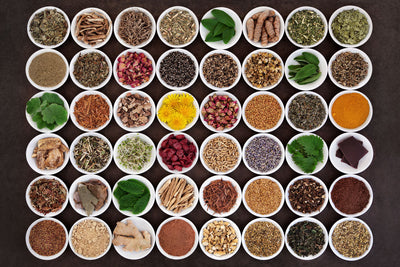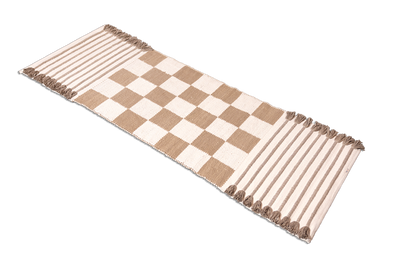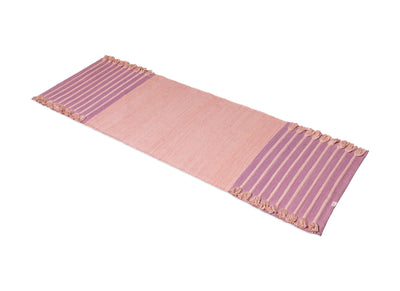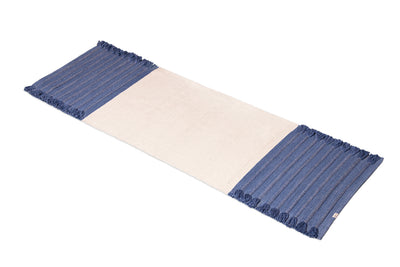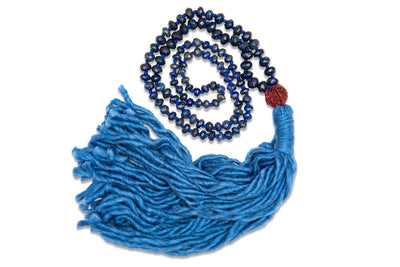Bennd's Guide to Vata Season, Through The Lens of Ayurveda
Vata is the dosha ruled by air and space. Vata season begins during fall and lasts until mid-winter. The fall season can bring along dry, cold, and flighty qualities that may create imbalances for those who already have Vata as a prominent part of their constitution. All of us, at some point throughout the season, will experience symptoms of Vata imbalance. Keeping our doshas balanced through lifestyle changes, diet, nutrition, and herbs is essential in promoting well-being and preventing disease throughout every season.
Vata Qualities and Signs of Imbalance
The elements of air and space govern Vata. Some of its qualities, or gunas, include light, dry, sharp, mobile, and cold. The cooler days and rapid changes in our environment are all due to the energies Vata brings this time of year. The accumulation of air and space during this season makes it easy to feel flighty, anxious, and ungrounded.
A Vata imbalance is directly related to excessive air and space in our system. When these elements become predominant in the body, they can create disruptions emotionally and physically and even lead to disease in the long term. This is why it's essential to become aware of the signs of Vata imbalances so you can stay on top of them. Some symptoms of Vata imbalances include:
- Spacey, racing mind
- Anxiety
- Restlessness
- Constipation
- Bloating
- Dry skin
- Joint pain and cracking
Balancing Vata
The best way to balance an accumulation of Vata is by incorporating its opposite qualities. So to balance an excess of Vata's light, dry, sharp, mobile, and cold qualities, we need to include warm, moist, heavy, and slow attributes in all areas of our lives.
Ways to avoid excess Vata:
- Packing a full schedule.
- Running from place to place.
- Eating quickly.
- Eating cold and dry foods/drinks like iced beverages; snacks like chips and crackers.
Helpful Bennd Tips
1.) Shift your daily routines and practices
When Vata accumulates, it's natural to feel like your thoughts are quick and flighty; you may have difficulty resting and staying still. Luckily, the practices of yoga, meditation, and Ayurveda provides ways for us to sync our bodies to the cycles of nature, balance any excess doshas, and experience the wisdom each season has to offer.

2.) Prioritize routine, slow, mindful movement, meditation, comfort, and nourishment during the fall and winter.
Our Double Harda Ayurvedic Yoga Mat is infused and dyed with warming and grounding herbs like Harda, Ashwagandha, and Alma, making it the perfect prop to implement in practice during the cooler months.

3.) Adjust your diet
Diet and nutrition are integral parts of Ayurvedic medicine. The food you eat and herbs and spices you incorporate in your life are essential when balancing your doshas. Choosing foods, spices, and herbs with opposite qualities of the dosha you are balancing is integral to alleviating a dosha imbalance. For example, choosing foods, herbs, and spices that are warming, moist, and heavy during fall can help balance excess Vata. Also, incorporating foods like root vegetables, bananas, papaya, meats, broth, and dates can help to ground our bodies and minds.
When it comes to spices, prioritize warming and robust flavor profiles like cinnamon, ginger, pepper, clove, and turmeric. These spices all have heating qualities, which help stimulate our digestive fire, allowing for easier digestion and elimination while pacifying the excess cold that a Vata imbalance can cause.

Vata season can be a nourishing time that lays the ground for comfort and introspection. There are many simple ways to seek balance this time of year, and Ayurveda offers us the opportunity to do so in a way that supports the mind, body, and spirit.




